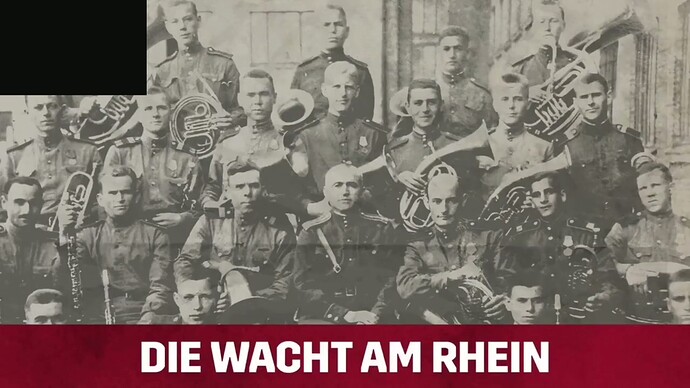记录一些事情,音乐,剧集等等
用 ai 写的关于这段历史的大概介绍:
The Makhnovshchina, also known as the Makhnovist movement, was a remarkable and radical experiment in anarchist communism that emerged in southern and eastern Ukraine between 1917 and 1921, during the tumultuous period of the Russian Revolution and the Ukrainian War of Independence. Named after its leader, Nestor Makhno, a Ukrainian anarchist and revolutionary, the movement sought to establish a stateless, classless society based on principles of self-management, equality, and grassroots democracy.
At its core, the Makhnovshchina was driven by the Revolutionary Insurgent Army of Ukraine (RIAU), often called the “Black Army” due to its anarchist black flags. This force, composed largely of peasants and workers, aimed to protect and nurture “free soviets” (local councils) and libertarian communes, free from the control of any centralized authority—be it the Bolsheviks, the Ukrainian nationalist government, or the White Army of the counter-revolutionaries. The movement gained traction in the wake of the February Revolution of 1917, when Makhno returned to his hometown of Huliaipole and began organizing agricultural communes, redistributing land from wealthy landowners to the peasantry.
The Makhnovshchina reached its height between 1918 and 1921, controlling a region sometimes referred to as “Makhnovia,” centered in Zaporizhzhia, with a population of around seven million. Here, the Makhnovists implemented their vision: land was worked collectively, local soviets managed community affairs, and cultural initiatives—like theater troupes and mobile printing presses—flourished to spread their ideals. Unlike the Bolsheviks, who imposed top-down control through war communism, the Makhnovists rejected coercion, emphasizing voluntary participation and local autonomy.
The movement’s history was marked by shifting alliances and fierce conflicts. Initially, the Makhnovists allied with the Bolsheviks against common enemies, such as the Austro-German occupation and the White forces of Anton Denikin. Their military prowess, particularly at the Battle of Peregonovka in 1919, played a key role in halting Denikin’s advance on Moscow. However, this alliance was short-lived. The Bolsheviks, wary of the Makhnovists’independence and anarchist ideology, turned against them once the White threat diminished. By 1921, after a series of betrayals—including the arrest and execution of Makhnovist officers by the Cheka—the Red Army crushed the movement. Makhno fled to Romania and eventually settled in Paris, where he died in 1934.
The Makhnovshchina remains a polarizing chapter in history. To anarchists, it represents a bold attempt at a functioning libertarian society; to critics, including Bolshevik historians, it was an unstable and chaotic force. Despite its ultimate defeat, the movement left a lasting legacy as a symbol of resistance against authoritarianism and a vision of what a decentralized, egalitarian society might look like, even amidst the chaos of war.
微信里看到一位考上了梦中情所,唉,祝福。我当年应该考一个离家近,又在领域内好点的学校。但,悟已往之不谏,好好努力现在的事吧
为什么人总是容易做白日梦,却对眼前触手可及的不屑一顾?想把过去的某个节点推倒重新来过,如果可以的话
还是要读文献,不读就容易闭门造车。你灵光一现想的点子,别人其实早做过了,或者别人早就论证过不行。
浴花挺好用的。之前的起泡网烂了再买一个,新的手感不好。浴花用着方便多了。美中不足的是,泡沫需要用手攥出来,有点费手
挺难想象以前的人拿一块肥皂是如何打出泡泡的。几块钱的一个小东西可以让打泡过程变得很舒适,泡沫细腻柔滑。
我以前是究极的拖延症,因为这个确实吃了不少亏。虽然现在还是会拖,但感觉比以前舒服多了。每个星期能出去吃吃喝喝,也少了一些水课浪费时间
处在一个天坑专业中,一群人抱团取暖。如果单是我觉得专业不行也就罢了,但好像没有几个人真心认同这个吊专业。shit
刚在想如果延毕个一年半载就能毕业,我倒也能接受。但该付出的时间没法节省。要是跟过去一样一味的逃离,最后可能全部木大。比较痛苦的一点在于,你必须对一项缺乏热情的事业倾尽努力,并且尽力去达成外部的成果要求。
我的好朋友考研的全部上了我的梦校
heartbreaking
看到一本好书,给我一种眼前一亮的感觉。
睡大觉,不曾想被梦惊醒了。我在一辆车上,我在记着什么东西。可能是在问一个人,我记下什么东西,以至于以后的很长时间还不会忘记你?就在我写下几个词的同时,乘坐的汽车以不受控的速度飞向一个方向,我,醒了
永远都不知道哪一场梦会把记忆里比较久远的片段给翻出来,鬼神冥冥,也许真的有什么东西在暗示着什么东西
当处在较为封闭的做题环境下,我可能会有点产出。但感觉大二就摆了,大二是不心安理得的摆,后面就是较为心安理得的摆。现在是焦虑的摆。总要给自己继续待在学校里拿出较硬的理由
来食拉面,,,
去楼下买汽水去,漫漫长夜,是要有什么来消磨时间

